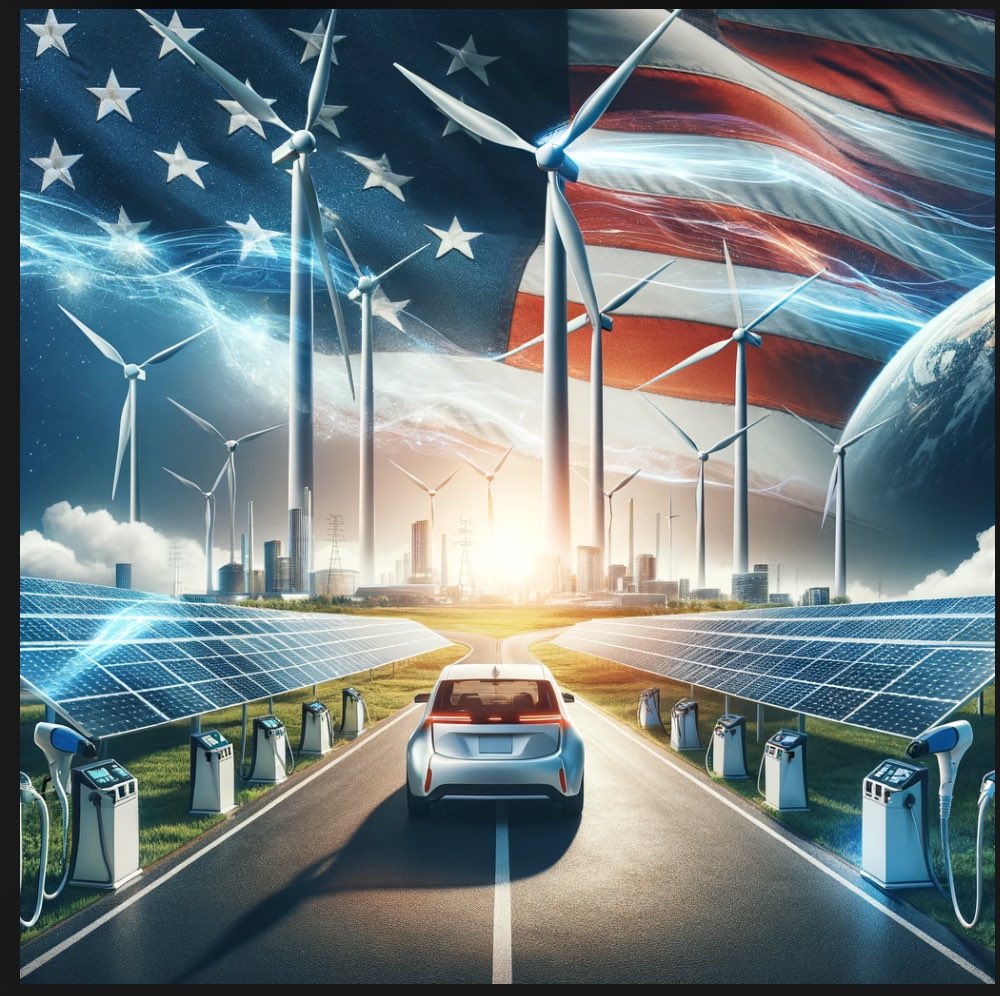Overview
The United States stands as a global energy powerhouse, reflecting its vast natural resources, robust energy policy framework, and technological advancements. It is a leading producer and consumer of energy, marked by significant contributions from both renewable and non-renewable sources. The U.S. energy market is characterized by its diversity, innovation, and dynamic regulatory environment, which supports its transition towards more sustainable and cleaner energy sources while ensuring energy security and economic growth.
Institutions and Energy Policy
- Department of Energy (DOE): Oversees national energy policy, research, and development. It plays a critical role in shaping the country’s energy future, focusing on innovation in energy technologies and promoting energy efficiency.
- Environmental Protection Agency (EPA): Regulates emissions and enforces policies aimed at reducing the environmental impact of energy production and consumption.
- Federal Energy Regulatory Commission (FERC): Manages the regulation of electricity rates, oil and gas pipelines, and natural gas terminal operations.
- State-level regulatory bodies: Complement federal efforts with localized energy policies and regulations.
Energy policies in the U.S. have historically focused on reducing dependence on foreign oil, increasing energy efficiency, and expanding renewable energy production. Recent administrations have emphasized the importance of transitioning to a low-carbon economy, with significant investments in renewable energy, electric vehicles, and energy storage technologies.
Energy Companies
- Oil and Gas: Major companies include ExxonMobil, Chevron, ConocoPhillips, and Occidental Petroleum. The shale gas revolution has significantly increased natural gas production, making the U.S. a leading producer.
- Power Sector: Dominated by companies like Duke Energy, Southern Company, and NextEra Energy. There is a significant shift towards natural gas and renewable energy sources in electricity generation.
- Renewable Energy: Companies like First Solar, Tesla (through its solar and energy storage business), and NextEra Energy Resources are at the forefront of the renewable energy sector, focusing on solar, wind, and energy storage solutions.
Energy Supply
The U.S. energy supply is diversified across oil, natural gas, coal, nuclear, and a growing portfolio of renewable energy sources (wind, solar, hydroelectric, and biomass). The country is a net exporter of natural gas and refined petroleum products, with significant ongoing investments in LNG export facilities. Renewable energy sources are rapidly expanding, driven by technological advancements and supportive policy frameworks.
Energy Prices
Energy prices in the U.S. vary by region and are influenced by global market dynamics, domestic production levels, and policy measures. Natural gas prices have generally been low due to high domestic production rates. Electricity prices are affected by fuel costs, power plant efficiencies, and transmission charges. Renewable energy costs have been decreasing, making them increasingly competitive with traditional energy sources.
Energy Consumption
The U.S. is one of the world’s largest energy consumers, with a significant portion of its energy used by the industrial, transportation, residential, and commercial sectors. There is a growing emphasis on energy efficiency and the adoption of cleaner energy sources across all sectors. The transportation sector, in particular, is undergoing a transformative shift towards electrification.
Issues and Prospects
The U.S. energy sector faces challenges including aging infrastructure, regulatory complexities, and the need to balance energy security with environmental sustainability. However, the prospects are promising, driven by:
- Innovation: Continued advancements in energy technologies (e.g., renewables, battery storage, carbon capture) are expected to enhance efficiency and reduce costs.
- Policy Support: Federal and state policies are increasingly supportive of clean energy initiatives and infrastructure modernization.
- Market Dynamics: The energy sector is rapidly adapting to changing market demands, including the shift towards electrification, renewable energy, and sustainability.
The future of the U.S. energy sector is likely to see further diversification of energy sources, increased energy independence, and a stronger emphasis on sustainability and carbon reduction. With its vast resources, technological prowess, and innovative spirit, the U.S. is well-positioned to lead the global transition towards a more sustainable energy future.
Recent Developments
Recent developments and policy updates in the USA’s energy sector reflect a concerted effort to enhance sustainability, diversify energy sources, and address the challenges of climate change. Here’s a summary of key trends and policy initiatives:
Distributed Energy Resources and Electric Sector Trends
- The U.S. is seeing an increase in the deployment of distributed energy resources (DERs), with a notable shift towards distributed storage. This trend is partly driven by the Federal Energy Regulatory Commission’s Order 2222, aiming to integrate DERs into wholesale power markets, enhancing grid reliability and flexibility.
- Nuclear energy is witnessing advancements in licensing and deployment of new reactors, with significant regulatory reviews expected for several small modular reactors (SMRs) and advanced reactors. This includes efforts to streamline regulatory processes and encourage financial investments in nuclear projects.
- The hydrogen industry faces a period of uncertainty due to pending tax credit guidance, potentially affecting project timelines and investments. Nonetheless, the Department of Energy (DOE) is finalizing negotiations with selected hydrogen hubs, indicating a continued commitment to developing hydrogen infrastructure.
- Cybersecurity remains a critical focus, with ongoing efforts to protect the electric sector from cyberattacks through enhanced collaboration and new initiatives.
Policy and Legislative Updates
- The Biden Administration continues to prioritize reducing greenhouse gas emissions, as evident in the American Energy Independence and Security Act and the Inflation Reduction Act. These legislative actions underscore the U.S.’s commitment to achieving energy independence, bolstering clean energy manufacturing, and moving towards a net-zero economy by 2050.
- Recent judicial decisions, including a Supreme Court ruling on the EPA’s authority to implement the Clean Power Plan, highlight the legal challenges and adjustments in the U.S. approach to regulating greenhouse gas emissions.
Investment and Innovation in Clean Energy
- The Administration has announced significant investments to renovate homes with zero energy and climate-resilient technologies, aiming to reduce decarbonization costs and lower energy bills.
- Federal investments are being made to accelerate the transition towards zero-emission vehicles and net-zero emissions aviation, alongside historic funding levels for clean energy and climate science research.
- Efforts to modernize America’s mining laws aim to responsibly develop domestic critical minerals, essential for clean energy technologies. There is also a push to streamline permitting processes to facilitate faster and cleaner development of America’s energy infrastructure.
These developments signify a holistic approach towards transforming the U.S. energy landscape. By focusing on technological innovation, regulatory reform, and strategic investments, the U.S. aims to secure its energy future, mitigate climate change impacts, and foster economic growth within the clean energy sector.







